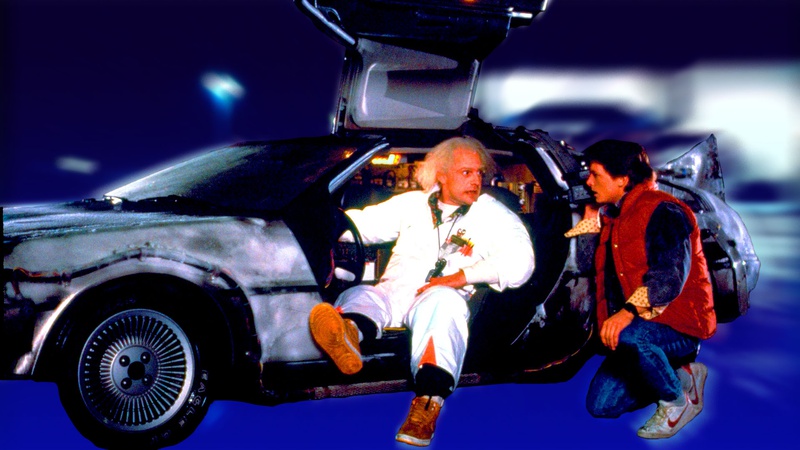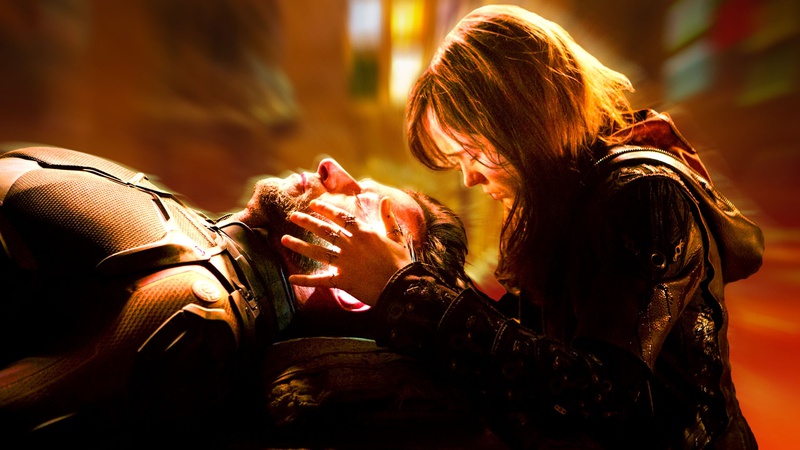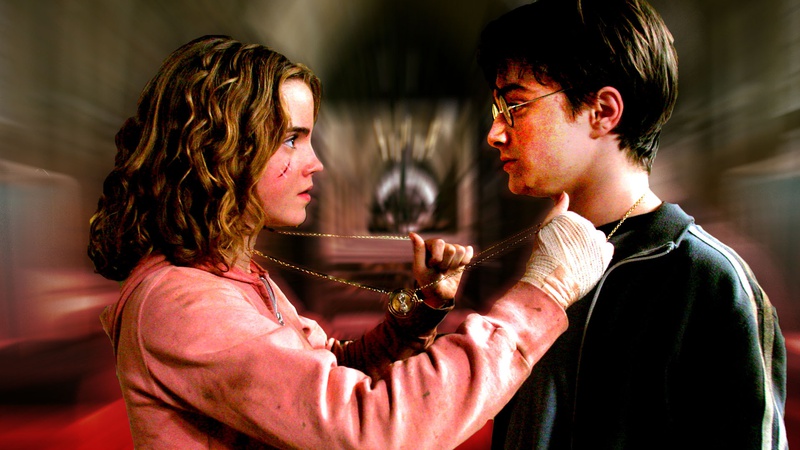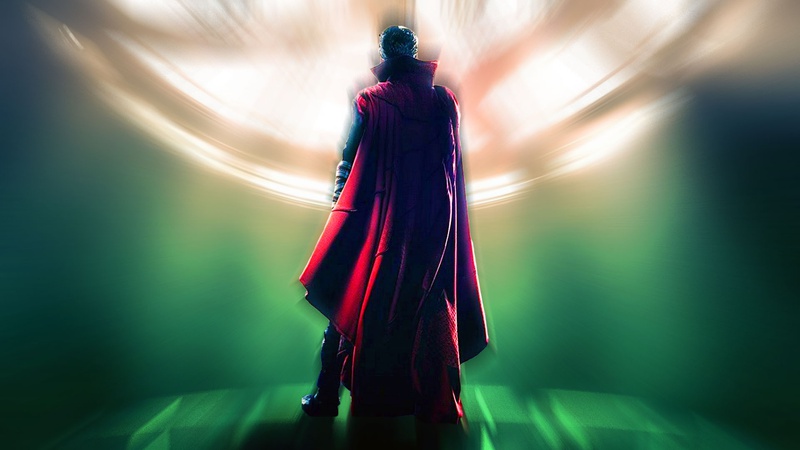
"Roads? Where we're going, we don't need roads."
Avengers: Endgame introduced the Marvel Cinematic Universe to the concept of time travel. With the inclusion of the Time Variance Authority in the Tom Hiddleston-starring Loki series, set to begin on June 9 on Disney+, time travel will continue to be a factor in the future of this cinematic universe.
As any time traveling movie does, Endgame set up its own set of rules and consequences for visiting a different time. Dr. Bruce Banner explains the MCU time travel rules as the following, “If you travel back into your own past, that destination becomes your future, and your former present becomes the past, which can’t now be changed by your new future.”
This convoluted way of explaining it basically means, unlike Back to the Future, changing the past will not directly change the future. This is why instead of going back in time to stop Thanos during the events of Avengers: Infinity War, the Avengers used time travel in order to collect the Infinity Stones.
However, the Ancient One and Banner's conversation about removing an Infinity Stone from a timeline explained how branched reality could be made. The Ancient One explains what would happen if the Time Stone were removed from their reality and not returned, "In this new branched reality, without our chief weapon against the forces of darkness, our world will be overrun. Millions will suffer."
In the end, all the stones are presumably returned by Steve Rogers and no branched realities are formed... with one caveat. The 2012 version of Loki seen in Endgame escapes with the Tesseract, instead of being sent to an Asgardian prison. Thereby, forming a new reality where the events of Loki will surely take place.
This new form of time travel is unique, but there are many other films and television shows that have used their own time-traveling logic. Here are the five time travel films you should watch before Tom Hiddleston's Loki.
BACK TO THE FUTURE

"So, Back to the Future's a bunch of bullshit?"
Despite Endgame's logic making Scott Lang see Back to the Future in a completely different light, it has a much simpler way of how time travel works. In the Back to the Future trilogy the flow of time runs on one line and the events of the past directly affect the future. Marty McFly traveling back to 1955, years before he was born, immediately altered the future when he crashed into Old Man Peabody's barn.
The consequences of time travel become more obvious when Marty interferes with his mom and dad falling in love. This sets the course for the entire plot of the film in 1955 and how Marty needs to get back to the future, while also ensuring that he restores his parents' relationship. In the end, not only does Marty restore their romance, but because of the critical differences in how it happened his family is much more successful and happy in 1985 when he returns.
Back to the Future is arguably the most iconic use of time travel in film history. A wild-eyed scientist creates a time machine and a teenager nearly erases himself from existence because his mom falls in love with him, instead of his dad. The synopsis is so strange but stands the test of time as of the most impactful Sci-Fi movies for a generation.
X-MEN: DAYS OF FUTURE PAST

"In the future, you and I are gonna be good friends. You just don't know it yet."
In Day of Future Past time-traveling was introduced to the X-Men Fox universe. Kitty Pryde sends Wolverine's consciousness to the past to save their world in the future. Pryde tells Logan, "As long as you're back there, past and present will continue to coexist. But once you wake up, whatever you've done will take hold and become history. And for the rest of us, it'll be the only history that we know."
This succinct explanation from Pryde gives the audience all they need to know in order to understand how time travel works. It's a unique take on time travel compared to other movies because Wolverine was the only one out of time, and he didn't physically travel. Similar to Future, the events of the past directly affect the future, putting all the pressure on Logan to fix the future.
In one of the best X-Men films, Days of Future Past succeeds at telling a time-traveling story that melds the two eras of X-Men. Look out for Pryde to introduce yet another form of time travel in the MCU when mutants are ultimately introduced.
HARRY POTTER AND THE PRISONER OF AZKABAN

"How did you get there? I was just talking to you over there! And now you're there!"
Prisoner of Azkaban has one of the best uses of time travel because it acts as a twist and is on a logical loop. What is unique about Azkaban is that when Harry and Hermione use the Time-Turner to travel back in time, they realize that earlier in the day they were already there. This looped timeline serves as a logical form of time travel because if they did go back in time, then they would have always been there. It is hard to explain but makes perfect sense in action.
The time-traveling aspects of Prisoner of Azkaban make it one of the more unique Harry Potter films. The closed-loop time travel used is incredibly satisfying, especially seeing Harry and Hermoine from the future affects the past. For example, when Hermoine throwing the rocks through Hagrid's window and when Harry evokes his Patronus and saves himself and Sirius Black.
J.K. Rowling wrote basically wrote out the Time-Turners after Azkaban because it opened up a lot of issues. Nevertheless, this use of time travel is one of the best in pop culture cinema and remains special because of its one-time use in this film.
INTERSTELLAR

"Love is the one thing that transcends time and space."
Interstellar represents a more scientific form of time travel. What happens in Interstellar can be described as time dilation, when time moves faster or slower depending upon where you are. This relativity theory involves the elasticity of time, specifically, getting close to a black hole, where the gravitational field is huge, time dilation is also huge. In Interstellar, when they travel to Miller's planet near Gargantua, 1 hour on the planet corresponds to 7 years on Earth.
23 years have passed when Cooper (Matthew McConaughey) and Brand (Anne Hathaway) return to the ship. It's a jarring moment when we get reintroduced to an older Romilly and Murph (via video message). The often meme'd scene of McConaughey crying at the screen occurs, but in the context of the movie is the devastating reality of time relativity and the risks.
This wouldn't often be described as a time travel movie, but it does give audiences a more realistic look at traveling through time at different rates. Give Nolan's latest Tenet a watch if you're searching for a more complex form of time travel.
DOCTOR STRANGE

"Dormammu, I've come to bargain"
Ironically, a different form of time travel was already introduced in Doctor Strange with the Time Stone. The Time Stone can reverse time, as well as look into the future like Doctor Strange did in Avengers: Infinity War. The 2016 origin story gave a better look at the stone's abilities and how time travel was possible. Even Thanos reverses a moment in time in Infinity War to bring Vision and (more importantly) the Mind Stone.
In Doctor Strange, the soon-to-be Sorcerer Supreme used the Time Stone in two ways. Firstly, he rewound the destruction of Hong Kong and the unleashing of the Dark Dimension. Something unique about time travel through the Time Stone is that it can alter various sizes of items. For instance, Strange manipulated time through something as small as an apple, then reverses mass destruction and deaths. Strange was also able to remove himself, Wong, and Mordo from being manipulated.
The more iconic use of time travel in Doctor Strange is when Strange traps Dormammu in an endless loop of time. Strange flexed his M.D. and Ph. D. degrees by outsmarting the ruler of the Dark Dimension. This loop became a mini version of the loop seen in Edge of Tomorrow (or Live Die Repeat) when you die you are able to restart your journey from the beginning. Strange's use of time-travel wasn't as commonly seen as from other films but gave fans their best look at the Time Stone in the MCU.
HOW LOKI'S TIME TRAVEL WILL COMPARE

The trailers leading up to Loki's premiere on Disney+ have made it clear that Tom Hiddleston's Loki has been incarcerated by the Time Variance Authority. The TVA act as the timekeepers of the MCU, and it seems like Owen Wilson's Mobius has a managing role within the organization. As previously mentioned, the 2012 version of Loki who escaped with the Tesseract in Avengers: Endgame fundamentally changed the timeline he was in and has now been labeled a "variant."
The official trailer made it clear that the TVA wants Loki to help them fix the reality that he broke through his use of the Space Stone. It is unclear exactly if or how the TVA is able to travel time (in the comics, they can allow people to time travel), but it isn't crazy to think Loki could travel through time, or, at the very least, visit other realities.
Similar to Back to The Future, Loki messed with the flow of time unknowingly. Just as Marty McFly did, Loki will need to restore reality. However, The God of Mischief always has a trick or two up his sleeve and likely won't fully coordinate with the TVA unless his life becomes endangered.
Just as Hermoine realized they needed to go back in time to save Sirius and Buckbeak in Prisoner of Azkaban, Mobius needs to revert the damage Loki has done to save the flow of time.
In a similar way to how the flow of time was location-dependent in Interstellar, time may work differently in the TVA facilities, where they can seemingly pluck anyone out of any time period that is disturbing the flow of time. And just as The Sorcerer Supreme protected the Time Stone and used it when needed, the same could be said for how Mobius and the TVA use their potential time-travel abilities.
Tony Stark's quote, “You mess with time, it tends to mess back” could be said for all of these films and will ring very true for Loki. The possibility of multiverse-jumping and time-traveling in the upcoming Disney+ series is sure to be a treat for fans that love the manipulation of time.
Find out how Loki's journey begins on Wednesday, June 9 when Loki premieres on Disney+.












